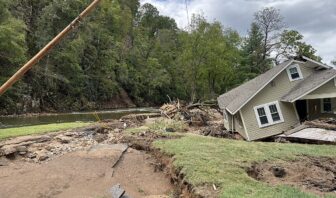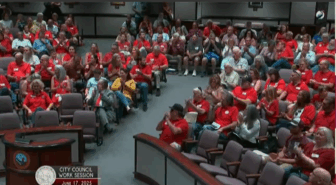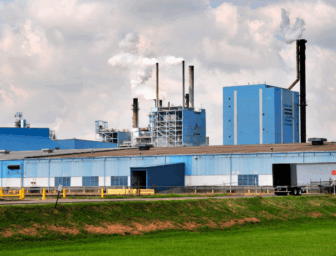After a year of public forums, expert testimony, and committee meetings, the Virginia Commission on Climate Change finalized its “Climate Change Action Plan” today. Virginia’s environmental community is encouraged that the Commission went beyond the initial goals it was charged with, calling for the state to cut global warming pollution by 25% over the next 12 years and more than 80% by 2050. However, the Commission missed the mark on a few policies that are key to hitting those reductions.
Virginia Commission Issues Final |Report on Climate Change
Environmentalists cite energy efficiency and pollution cuts as top priorities
Richmond, VA – After a year of public forums, expert testimony, and committee meetings, the Virginia Commission on Climate Change finalized its “Climate Change Action Plan” today. Virginia’s environmental community is encouraged that the Commission went beyond the initial goals it was charged with, calling for the state to cut global warming pollution by 25% over the next 12 years and more than 80% by 2050. However, the Commission missed the mark on a few policies that are key to hitting those reductions.
“We are especially encouraged to see that the Commission recommends a mandatory energy efficiency standard of 19% reductions in electricity consumption by 2025,” said Nathan Lott, Director of the Virginia Conservation Network. “Energy efficiency is the cheapest and easiest way to reduce our energy demands and curb global warming pollution.”
Governor Tim Kaine was on hand at the Commission’s final meeting to thank members for their service. It is now up to the Governor and the General Assembly to begin implementing the more than 100 recommendations of the Commission, including the proposed energy efficiency program.
Environmental groups applauded the commission for recommending that the state adopt stronger global warming emissions reduction goals and for its recognition of energy efficiency as an important first step to meeting those targets. Environmentalists encouraged the Governor and General Assembly to immediately act upon several specific recommendations of the Commission, including:
• Lawmakers should enact a mandatory energy efficiency standard requiring the state to achieve a 19% reduction in electricity consumption by 2025.
• The Department of Housing and Community Development should incorporate increased energy efficiency standards into the statewide building codes so that resulting codes will be 15% more efficient than 2006 codes by 2012.
• State and local transportation agencies should help cut global warming pollution with expanded funding for mass transit and rail systems, by offering incentives for more fuel efficient vehicles, and by integrating transit and community design.
Environmentalists criticized the commission for not calling on the state to set a minimum standard energy production from renewable sources such as wind, solar and geothermal. “Unfortunately, in the absence of a mandatory standard for renewable energy production, it will remain difficult for Virginia to reach the greenhouse gas emission reductions the Commission recognizes are needed,” said J.R. Tolbert, Field Organizer for Environment Virginia.
Environmental groups affirmed their plans to work with the Virginia General Assembly and the Kaine administration to implement strong laws that will stem the worst effects of climate change. They called on citizens to stay actively engaged in the legislative process to ensure that lawmakers act swiftly upon the Commission’s recommendations.
“Reducing Virginia’s contribution to global warming will not be easy – but it is critical that the legislature, Governor, and the public work together to ensure these recommendations become reality,” said Antigone Ambrose with the Chesapeake Climate Action Network.
###




